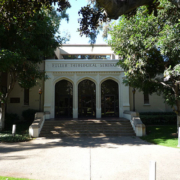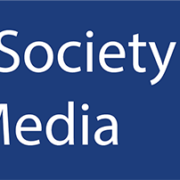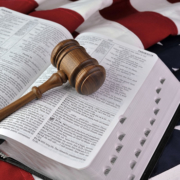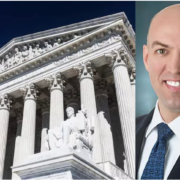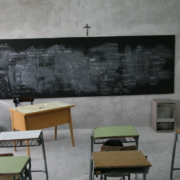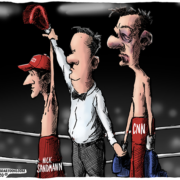A Year-End Victory for Catholic Education
Last summer, I wrote about the urgency of holding a “crucial line of defense for Catholic education” against false ideology and attacks on Christian morality — and now, a key victory has been won in federal court!
On Dec. 13, a three-judge panel of the Ninth Circuit Court of Appeals ruled unanimously that Fuller Theological Seminary in Pasadena, California, is protected by the First Amendment in its right to uphold religious and moral standards for its members. It agreed with attorneys from the stalwart Becket institute and rejected an appeal by two former students who were dismissed from the seminary for violating agreed-upon standards by entering into civil same-sex marriages.
While the dismissal of two students at a nondenominational seminary may not seem immediately relevant to Catholic schools and colleges, in fact this case threatened to dismantle a crucial protection for religious education. The lawsuit challenged the religious exemption to Title IX, the federal law that bans sex discrimination in education, and the exemption’s availability to schools and colleges that are not directly controlled by a religious sect — as many private Catholic schools and nearly all Catholic colleges are not.
Why should this be important to Catholic educators? Surely they have no issues with preventing sex discrimination? Catholic schools and colleges have eagerly employed women, expanded opportunities for women’s sports and worked to combat sexual harassment and assault.
In fact, victory in this case now empowers Catholic educators to stand firmly in the defense of women and against the irrational demands of gender ideology, which would erode many of the gains made for women under Title IX.
The whole federal effort to prevent sex discrimination was upended in 2020 with the U.S. Supreme Court ruling in Bostock v. Clayton County, which distorts the meaning of “sex discrimination” for purposes of employment law to include homosexuality and self-identified gender, even when it is contrary to one’s biological sex. Although Bostockapplies only to employment law under Title VII, activists and the Biden administration are attempting to conform Title IX to the demands of LGBT ideology.
This only hurts women, by giving biologically male students access to women’s sports competitions and bathrooms. It creates other serious problems for Catholic education by allowing teachers and students to ignore moral standards regarding same-sex marriage and homosexual behavior.
Nevertheless, as long as the robust religious exemption in Title IX stands, religious schools and colleges can uphold their beliefs and protect traditional separations between male and female facilities and athletics. The exemption stands in the way of radical attacks on religious education. That’s why, over the past year, we have seen multiple legislative and legal efforts by activists and the Biden administration to weaken or dismantle the Title IX religious exemption.
One of those now-failed efforts was Maxon v. Fuller Theological Seminary. The plaintiffs seized upon language in the Title IX religious exemption that says an eligible school or college must be “controlled by a religious organization.” Although the U.S. Department of Education has always exempted from Title IX clearly religious institutions that are nondenominational (like Fuller) or legally independent of a religious body (like nearly all Catholic colleges and many Catholic schools), the plaintiffs tried to have these institutions stripped of their religious freedom and forced to comply with the Biden administration’s strange interpretation of sex discrimination.
This would have been devastating for Catholic education. Last June, the Cardinal Newman Society and several faithful Catholic schools and colleges joined with the Christian Legal Society and other religious groups in an amicus briefurging the Ninth Circuit to reject the students’ appeal. Signers included Belmont Abbey College (North Carolina), Benedictine College (Kansas), Franciscan University of Steubenville (Ohio), Lumen Christi High School (Indiana), Marian High School (Indiana), the Regina Academies (Pennsylvania) and Thomas More College of Liberal Arts (New Hampshire).
Other signers representing a variety of beliefs included the American Association of Christian Schools, Association for Biblical Higher Education, Association of Christian Schools International, General Conference of Seventh-Day Adventists, Jewish Coalition for Religious Liberty, and Lutheran Church-Missouri Synod.
“It is dangerous and un-American to deny a share in religious freedom for nondenominational and independent religious institutions,” was my statement to media reporters last summer. “Such a policy would unconstitutionally discriminate against many of America’s religious schools and colleges, including those Catholic schools and colleges that are faithful to their beliefs but legally independent of the Catholic Church.”
The amicus brief called on the Ninth Circuit to recognize that an independent institution controlled by a board of trustees with deeply held religious convictions and a religious mission is sufficiently “controlled by a religious organization” for the purposes of the Title IX exemption.
Praise be to God, the court unanimously agreed. “For over 30 years, DOE [U.S. Department of Education] has maintained that the statute does not contain ‘an independent requirement that the controlling religious organization be a separate legal entity than the educational institution,’” the court noted. It upheld a district court’s ruling in 2020 and found that the plaintiffs “could allege no additional facts to save their challenge to Fuller’s differential treatment of same-sex marriages as compared to opposite-sex marriages, since Fuller’s actions fell squarely within Title IX’s religious exemption.”
Catholic educators and the whole of the Catholic Church received a wonderful gift, by this strong federal ruling for religious freedom. We live in a nation that still celebrates Christmas and allows Catholics to teach young people the truth of Christ — and for that we can be grateful in this merry season.
This article first appeared at the National Catholic Register.

